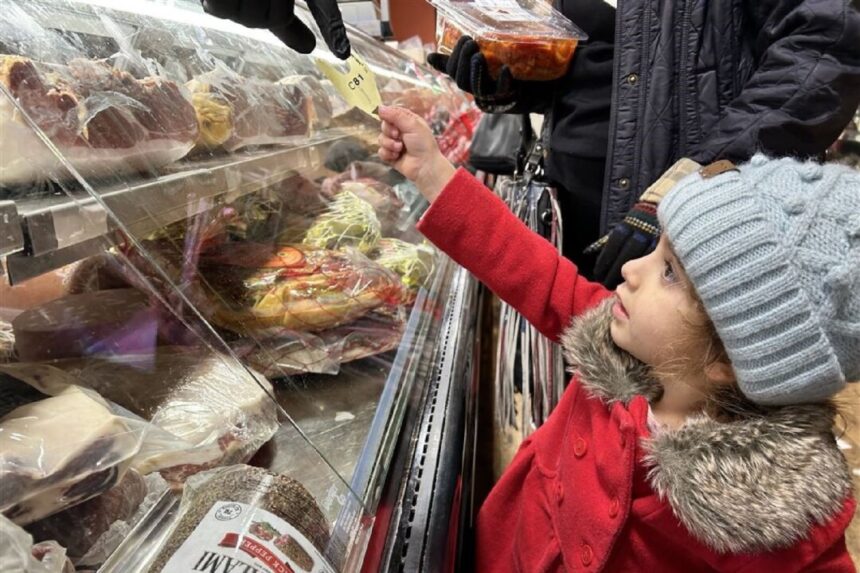Commentary
HOMEWOOD, Pa.—Frank Tropiano occasionally drives past the small structure that was once his family’s home when they arrived in the United States in 1966. The structure, attached to the rear of a house on 7311 Susquehanna St., was a significant upgrade from the tiny, basic dwelling they left behind in Siderno, Italy.
Despite the humble beginnings, Frank, now 68, vividly recalls the days leading up to his family’s first Christmas Eve in America. The familiar smells of baccala being prepared for the Feast of the Seven Fishes brought him a sense of comfort and continuity in a new and foreign land.
As the Christmas season approaches, Americans of southern Italian descent will gather seafood for the traditional Feast of the Seven Fishes. This longstanding custom dates back to the immigrants who brought it to America, like Frank Tropiano.
In Siderno, the day leading up to Christmas Eve was a festive affair, with family members coming together to cook an array of seafood dishes. The tradition of fasting from meat on Christmas Eve and consuming fish instead has deep religious roots.
The number seven in the Feast of the Seven Fishes may symbolize the seven sacraments or the 13 dishes representing the apostles and Jesus. The tradition continues to thrive in communities across the country, with stores bustling with customers preparing for the special occasion.
At the parking lot on 20th and Penn Avenue, families like the Tropianos continue the tradition of purchasing fresh seafood and other ingredients for their Christmas Eve feast. The holiday season serves as a reminder of their cultural heritage and the importance of family and tradition.
After having the bags dropped in their car, they make their way back toward Penn Mac to buy the baccala, crotonesi, reggino parmesan, manchego cheese, panettone, calabrese olives, dececco and, of course, spaghetti.
Coming here is a ritual for thousands of Italians, like the Tropianos and my own family—a rite of passage that has been handed down from each generation, often from mother to daughter, to continue the family feast that not only celebrates their faith but also brings people together over the other great connector: food.
The Sciulli family of Greenfield has already made their pilgrimage to the Strip for their seafood. Anna Sciulli said they have continued making their supper in her parents’ Greenfield home, where her son now lives and which has two kitchens—one on the first floor and one in the basement—to accommodate the amount of food they are making.
“The basement is where all of the frying happens,” said Ms. Sciulli, the granddaughter of Italian immigrants; her husband, though, arrived here from Northern Italy in 1972.
When my own grandparents immigrated here from Strongoli, they settled on Yuba Alley in the Hill District. My grandfather Antonio would go to the Strip with my Uncle Bill and pick up the smelts, sardines, baccala and other fresh seafood for my grandmother to prepare. I carried on that tradition in our family, first taking my children Shannon and Glenn in the ‘80s when they were toddlers.
It is a custom I have continued with my grandchildren Eleanora, Milo, Louisa and Rocco, who of course all scrunched their noses last week when seeing piles of squid on ice at Wholey’s. But they will still dutifully stuff them with me next weekend as they become the bearers of the ritual going forward.
My father, Ron Zito, 87, recalls the dishes his mother served, especially the snails: “Oh, I remember the snails vividly. My mom would put them in a bowl of water in the sink in the kitchen, and in the morning, we’d get up and they were crawling on the walls and tile,” he said, laughing.
The anticipation of the aromas of breading, sauces, cheeses and the cooking is a big part of the entire experience, said Ms. Sciulli. “So is the chaos of squeezing so many people into one kitchen, because of course everyone—everyone—wants to be in the kitchen to take in the noise, laughter and togetherness of all coming together to make the meal.”
To the Market on a Donkey
Mr. Tropiano emphasizes the traditional fish dinner in Siderno was simple in comparison to what he and his wife, Dee, will be serving to his adult children and his grandchildren next Sunday at their home in Penn Township.
In Siderno, “we had fried calamari, sardines and we had anchovies and then the baccala,” he said. “We didn’t have access to a lot—remember, my father would go to the market on the donkey, and whatever fish they had there fresh, he got. Sometimes it was seven, sometimes we didn’t have enough money for seven, you understand.
“We didn’t have much, but we had a lot.” Could you please rewrite this sentence?
Source link




